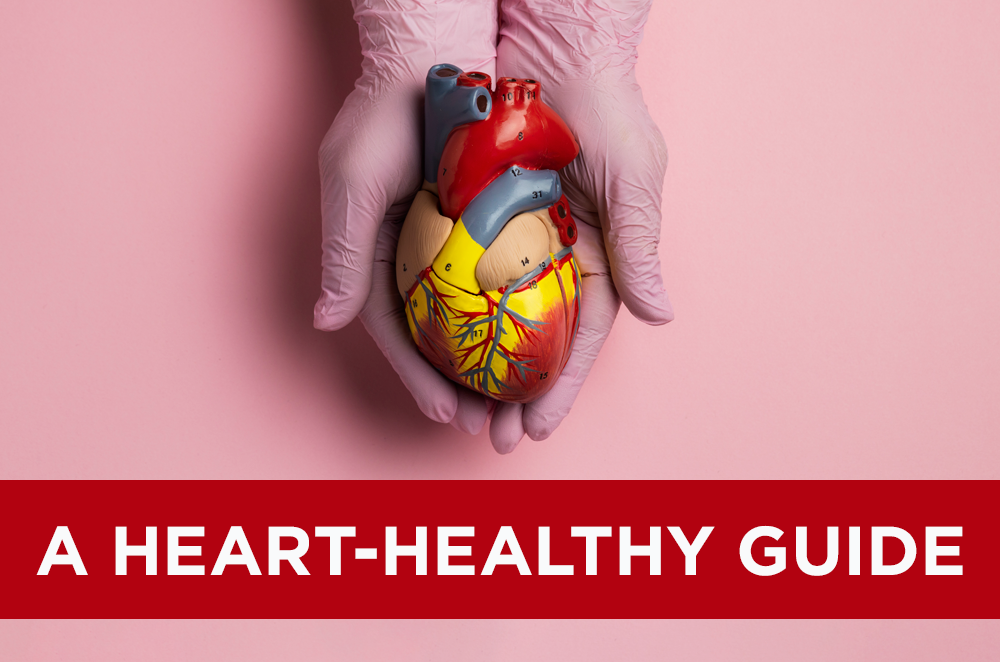National Cholesterol Education Month, observed every September, is the perfect time to raise awareness about heart health and the importance of managing cholesterol levels. High cholesterol can lead to serious health problems, including heart disease, stroke, and other cardiovascular conditions. We hope this heart-healthy guide encourages you to prioritize your heart health and inspires you to make some positive changes.
Understanding Cholesterol
Cholesterol is a waxy substance found in all human cells. While it’s essential for certain bodily functions, excessive levels can accumulate in your arteries, leading to atherosclerosis. This condition can narrow your arteries, restricting blood flow to your heart and other organs.
Types of Cholesterol
There are two main types of cholesterol:
- Low-density lipoprotein (LDL) cholesterol: Often referred to as “bad” cholesterol, high LDL levels can increase your risk of heart disease.
- High-density lipoprotein (HDL) is good cholesterol that helps remove LDL from your arteries.
Factors Affecting Cholesterol Levels
Several factors can contribute to high cholesterol, including:
Diet: Eating too much saturated and trans-fat can raise your LDL cholesterol.
Lifestyle: Smoking, excessive alcohol consumption, and lack of physical activity can also negatively impact cholesterol.
Genetics: Some people may have a genetic predisposition to high cholesterol.
Age: Cholesterol levels tend to rise with age.
Medical conditions: Certain health conditions, such as diabetes and hypothyroidism, can affect cholesterol levels.
Tips for Managing Cholesterol
Fortunately, there are many steps you can take to manage your cholesterol and improve your heart health.
Healthy diet: Choose foods low in saturated and trans fats, and incorporate plenty of fruits, vegetables, whole grains, and lean proteins.
Regular exercise: Try to get at least 30 minutes of moderate exercise most days.
Weight management: Keeping a healthy weight can help lower your cholesterol.
Quit smoking: Smoking can significantly increase your risk of heart disease.
Limit alcohol consumption: Excessive alcohol consumption can increase cholesterol levels.
Medical management: If you have high cholesterol, your doctor may recommend medication to help manage your levels.
If you or your family have a history of high cholesterol, it’s a good idea to see your doctor regularly to check your LDL and HDL levels. Remember, your heart is a precious gift. By taking steps to manage your cholesterol, you’re investing in a healthier, happier future. So, let’s make this September a month for heart health. With this heart-healthy guide, you can feel better, look better, and live a longer, more fulfilling life.
Resources:
https://www.cdc.gov/cholesterol/risk-factors/index.html
https://www.nhlbi.nih.gov/health/blood-cholesterol/causes
Disclaimer:
The Comanche County Memorial Hospital website does not provide specific medical advice for individual cases. Comanche County Memorial Hospital does not endorse any medical or professional services obtained through information provided on this site, articles on the site or any links on this site.
Use of the information obtained by the Comanche County Memorial Hospital website does not replace medical advice given by a qualified medical provider to meet the medical needs of our readers or others.
While content is frequently updated, medical information changes quickly. Information may be out of date, and/or contain inaccuracies or typographical errors. For questions or concerns, please contact us at contact@ccmhhealth.com.

